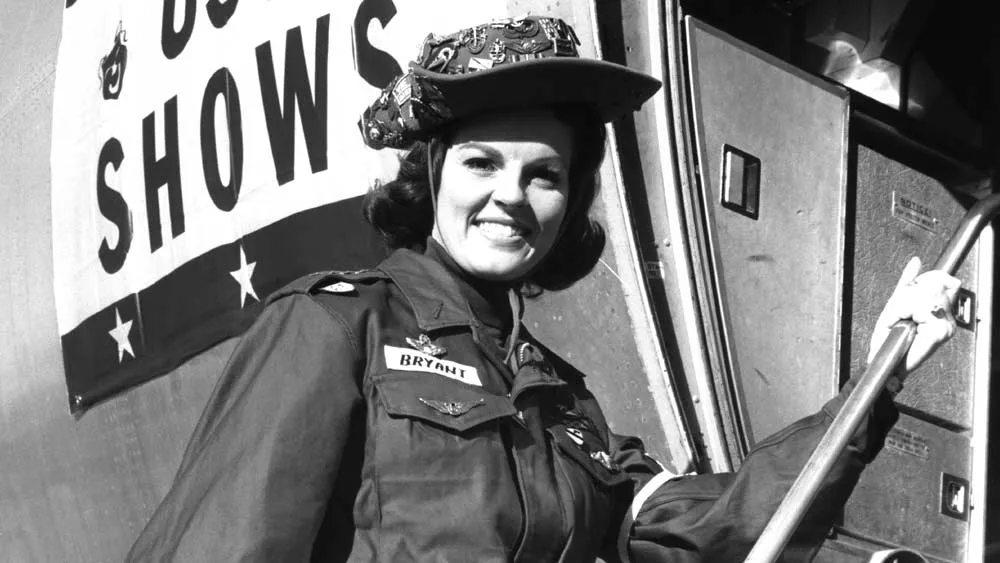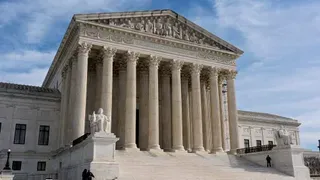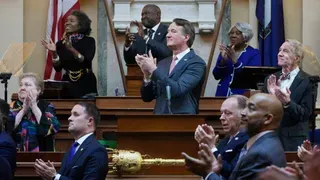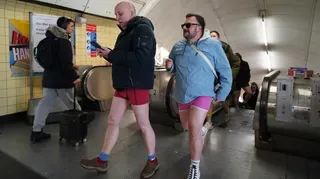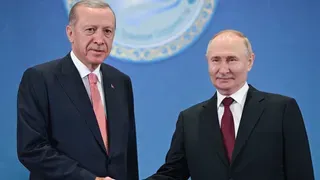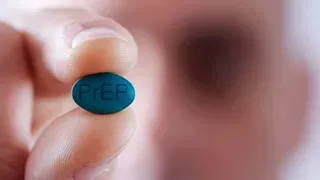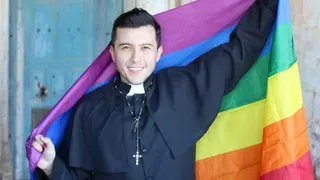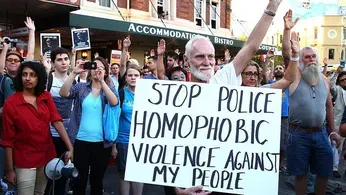
August 19, 2024
New Survey Shows High Rates of Police Harassment and Abuse Against the LGBTQ+ Community
READ TIME: 5 MIN.
This article is reposted from The Conversation.
LGBTQ people have a troubled relationship with police − new survey shows high rates of harassment, abuse and distrust
Stefan Vogler, University of Illinois at Urbana-Champaign
The LGBTQ community's long history with law enforcement is so troubled and violent that organizers at some recent Pride parades decided to ban police from marching in the parade.
Throughout the 20th century, the police would routinely raid gay bars, rounding up patrons and taking them to jail. Sometimes, the names and photos of those arrested were published in newspapers - with potentially dire social and economic consequences.
Police departments across the country have taken steps in recent years to improve relations with the LGBTQ community, creating LGBTQ liaison officer positions and mandating sensitivity trainings. Yet raids continue to occur sporadically. In January 2024, police officers entered four gay bars in Seattle unannounced, allegedly taking pictures of customers and citing at least one bartender for having an exposed nipple in violation of city policy.
And that's not the only reason the relationship between police and LGBTQ people remains fraught.
Insulting language and abuse
I am a sociologist who studies gender and sexuality. To understand LGBTQ people's experience with and attitudes toward police, I recently conducted a study of LGBTQ-police relations alongside professor Valerie Jenness, my colleague at the University of California, Irvine.
This first-of-its-kind national survey of both LGBTQ and non-LGBTQ people drew on a nationally representative sample of 1,598 people - a gold standard for sociological survey research - followed by in-depth interviews with 59 LGBTQ survey participants.
The results, some of which were recently published in a report co-authored with the American Civil Liberties Union were eye-opening.
Our study found that LGBTQ people still face more police mistreatment than non-LGBTQ people and have less trust in the police. Perhaps unsurprisingly, they are also significantly more reluctant to call the police for help.
At the broadest level, we found that LGBTQ people are more likely to be stopped, searched, arrested and held in custody than non-LGBTQ people. Just under 15% of non-LGBTQ respondents had experienced this kind of police-initiated contact in the past year, compared with 21% of LGBTQ people and 33% of transgender respondents.
Those interactions with police are often uglier for LGBTQ people than non-LGBTQ people, especially bisexual, transgender, nonbinary people and queer people - that is, those who identify outside of traditional "gay" and "lesbian" labels. Approximately a quarter of all bisexual and queer survey respondents had experienced insulting language during a police interaction.
These numbers were even higher for transgender and nonbinary people - 45% and 33%, respectively. One transgender woman we interviewed described, for instance, how police officers purposefully used the wrong gender when referring to her, asked her "what" she was and used anti-LGBTQ slurs.
Black transgender people were the most likely to have experienced police violence. Fifty-three percent said they'd been hit, beaten, pushed or otherwise physically assaulted by police, compared with 25% of white transgender respondents. In contrast, only 8% of white cisgender men said that they had been the victims of police brutality.
This data powerfully demonstrate how gender, sexual identity and race all intersect to influence police treatment.
Afraid to call the cops
Given these findings, it is perhaps unsurprising that LGBTQ people, on average, rated the fairness of their police interactions approximately 12% lower than their non-LGBTQ peers.
Again, bisexual and queer people reported lower perceptions of fairness in their police interactions than gay and lesbian people. Meanwhile, transgender and nonbinary people reported worse perceptions of fairness than cisgender LGBQ people.
Consequently, LGBTQ people also reported less trust in the police than their non-LGBTQ counterparts, though this varied significantly by race.
Black and Hispanic LGBTQ people, for example, rated their trust in the police at 2.9 on a 5-point scale; white LGBTQ people rated it at 3.3, a statistically significant difference. Asians reported the highest perceptions of police legitimacy among LGBTQ people, with a 3.6 rating.
Finally, when we asked survey respondents if they would call the police for help if they became victims of a crime, we found that LGBTQ people were less likely to say yes than non-LGBTQ people: 71% compared with 87%.
But again there were meaningful differences among LGBTQ people, too. About 80% of gay and lesbian people said they would report their victimization to police, while only 69% of bisexual, 61% of transgender respondents and 60% of queer people would.
Interestingly, among LGBTQ people, Black respondents were the most likely to say they'd call the police for help, at 77%, followed by 74% of whites and Asians. Hispanics were the least likely, at 58%.
Police 'more foe than friend'
Putting all of this together, LGBTQ people are significantly likelier to say they see the police as more foe than friend than non-LGBTQ people.
But this top-level takeaway hides important subtle differences in the data. Some members of the LGBTQ community report having had roughly similar experiences with the police as their non-LGBTQ peers, and they have similarly positive perceptions of law enforcement.
White gay men and lesbians, for example, are almost as likely as non-LGBTQ people to call the police for help. Meanwhile, LGBTQ people who are Black, poor or otherwise marginalized have a more troubled relationship with law enforcement in almost every category than their more privileged peers.
Similarly, LGBTQ people of all races fare worse by almost every measure than their non-LGBTQ peers of the same race. Even white lesbian and gay people still face significant mistreatment by police.
Our study underscores that gender and sexuality are vitally important considerations in national conversations on policing.
The LGBTQ community has won important legal rights over the past 30 years, but official violence and oppression have continued. And with more anti-LGBTQ bills emerging across the country, from laws banning gender-affirming care to those prohibiting teachers from discussing LGBTQ issues, it is little wonder that LGBTQ people remain leery of police.
"If the police are told to uphold a law, and that law goes against you fundamentally as a person," one of our interviewees told us, "you're not going to support the police."![]()
Stefan Vogler, Assistant Professor of Sociology, University of Illinois at Urbana-Champaign
This article is republished from The Conversation under a Creative Commons license. Read the original article.
